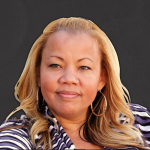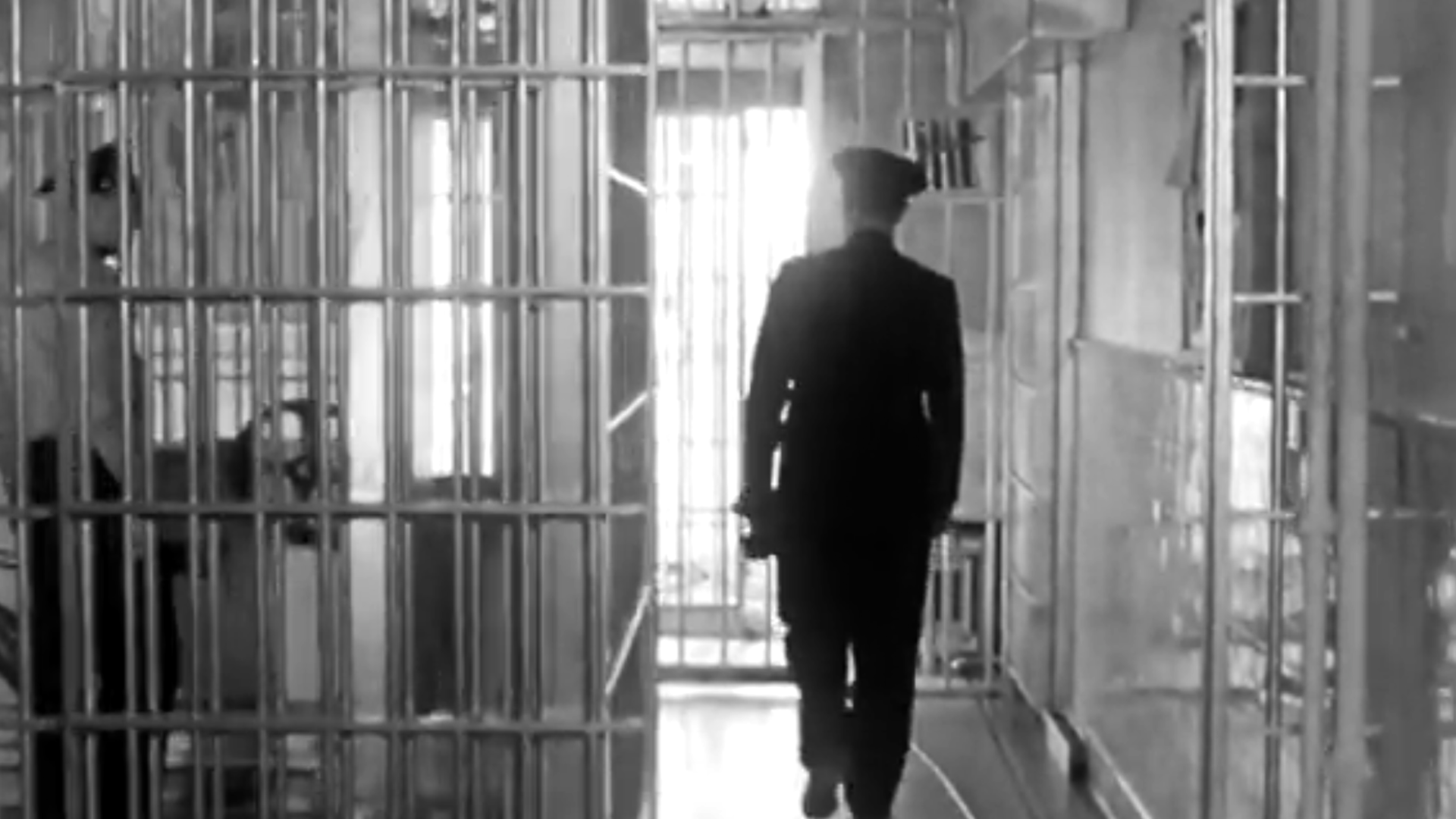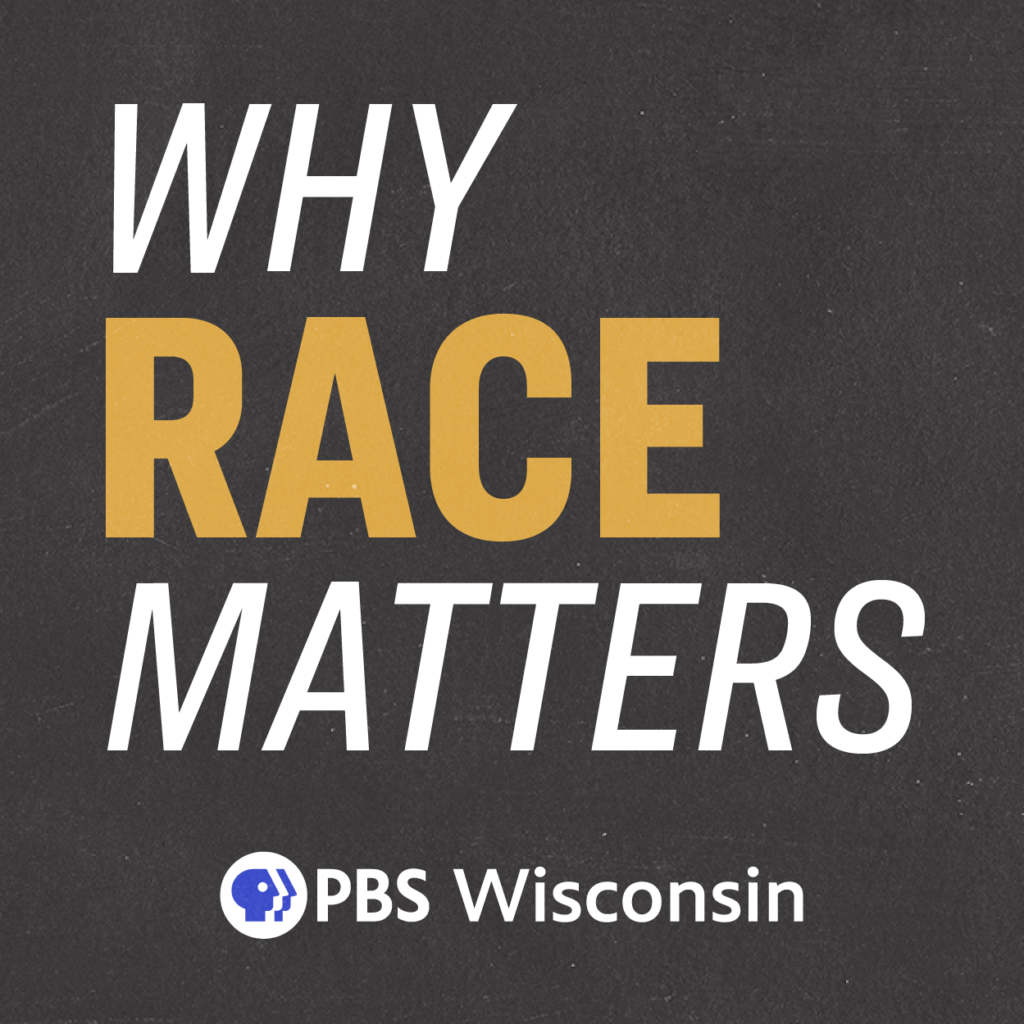Women and Barriers After Incarceration
"When you talk about Black women that have been incarcerated, our system doesn't even know what to do."—Carmella Glenn
Women and Barriers After Incarceration
In Wisconsin, Black women are overrepresented in the criminal justice system. They make up just 6 percent of the state’s population but 21 percent of women in our correctional system. In this episode, Angela Fitzgerald talks with Carmella Glenn, coordinator of JustDane's “Just Bakery.” They discuss issues facing Black women leaving incarceration, roadblocks, and solutions for returning home.
GUEST

Carmella Glenn
Carmella Glenn is the Program Coordinator for the Just Bakery program, an initiative of JustDane in Madison, Wis. She holds degrees in both criminal justice and culinary arts. Just Bakery is a 12-week educational and vocational training program specifically designed to prepare men and women returning to the community after incarceration to work in commercial bakeries. The program works with individuals who are experiencing significant barriers to employment (homelessness, criminal conviction history, lack of education, and/or a lack of work history or skills) and who have an interest in the culinary arts.
TRANSCRIPT
Angela Fitzgerald: When we talk about Black incarceration in Wisconsin, we typically talk about issues that Black men face, which is an important topic. Wisconsin has one of the highest incarceration rates for Black men in the entire country. But what about Black women who are incarcerated? What are the issues that they face? On this episode of Why Race Matters, we’ll talk with one woman who is working to remove employment barriers for people who are formerly incarcerated and who are returning back to their communities. She’ll also share about her experiences in the criminal justice system.
But first, let’s discuss why race matters when it comes to incarceration. Existing at the crossroads of race and gender, Black women are especially vulnerable to policing and sentencing rooted in a history of oppression. Black women are more likely to be fatally shot by the police in comparison to any other group of women. They are also most likely to be unarmed when those shots are fired. In Wisconsin, Black women are overrepresented in the criminal justice system. As a group, they make up just 7.5% of the state’s female population, but 21% of women in the Wisconsin correctional system.
Women who survive criminal justice often find re-entry to be an uphill battle. Formerly incarcerated women face high rates of mental health challenges, poverty, homelessness, and unemployment. This is compounded by the reality that the majority of incarcerated women are mothers of children under 18. All of these barriers can increase the threat of reincarceration.
To unpack these experiences is Carmella Glenn, coordinator of Madison Area Urban Ministry’s Just Bakery, a culinary vocational program for people returning home after incarceration. So thank you for joining us today, Carmella.
Carmella Glenn: Thanks for having me.
Angela Fitzgerald: Absolutely. Can you tell us your story and how it’s gotten you to the place where you are and the work that you do?
Carmella Glenn: So, my story starts with me trying to find my way of who I was. When I was about 21, my mom was sentenced to 20 years in prison.
Angela Fitzgerald: Wow.
Carmella Glenn: And my father was sentenced to five years in federal prison, my mom was state. My husband’s been incarcerated, a lot of my family and friends. I was incarcerated in Dane County jail, not in the correctional system. And the reason was, once my mother went to prison, I was the provider of all my younger brothers. I’m the oldest of four. And I just fell into substance use myself around alcoholism, numbing. I had a lot of traumatic events happen in my childhood.
When my mom came home from prison, so here’s where my journey begins around criminal justice. When my mom came home from prison, she decided that she needed to go back in and work inside of the prison system. And so she started working for Asha Family Services– they’re out of Milwaukee– around domestic violence.
And so I started doing that work going into the women’s prisons, and I fell in love with the work inside. However, I felt like I didn’t have all the pieces.
And so I started looking around for more employment and ended up working for now JustDane, then Madison Area Urban Ministry. We changed our name in June.
Angela Fitzgerald: When you mentioned your experience within the criminal justice system and then family members’ experiences, I guess I wanted to know if you could uplift things that people may not know about what it’s like because you even distinguished federal versus state versus jail; right? And for a lot of us who may watch Law and Order or what’s the show, Orange Is The New Black, there’s an idea of what it is, but what is it actually from your experience and those of your family members?
Carmella Glenn: It is a system that is used to house people rather than help people. It is a system that is putting bodies behind bars and doing nothing for them while they’re in there.
Angela Fitzgerald: Okay, so this idea that you’re going in to come out a new person that can positively contribute to society, you’re like, “Absolutely not.”
Carmella Glenn: Absolutely not. The reason is… Most of the reason is most of the people that go to prison go in there for non-violent offenses and are coming back, and there isn’t treatment inside of there at the levels.
It’s used for housing because we don’t have enough mental health providers in the community, so they house people. There’s not enough around addiction and substance use disorder period, inside of there. And if they do get it, and if you are one of the lucky that do get to get in that, let’s say you get a 10-year sentence, you sit nine and a half years then your last six months, let’s shove a whole bunch of programming in you and then go say, “Play nice outside.” And once you walk out of the gates, the supports end.
Angela Fitzgerald: Wow. And that explains probably why the recidivism rate is what it is because I’m going in, I’m not getting help, not getting services, or maybe a little something. And then, I’m being sent back out with now this label attached to me.
Carmella Glenn: And more trauma being inside of a cell around people who aren’t getting any help themselves. So we’re creating little pockets of trauma and then saying, “I consider you rehabilitated,” and they like to use that. But what about those that haven’t been habilitated in the first place? Have significant trauma and go inside of this trauma box and then come out? And for women, you are addressing– Most women that go in are for non-violent offenses but have suffered at a two to three times higher rate than their counterparts, significant trauma and go inside of the box, and then children and all of that.
Angela Fitzgerald: Wow, yes. You mentioned your work with domestic violence, and so understandably, there’s a correlation, right? Between women who have experienced domestic violence and those who are incarcerated. Would you say that it’s higher than the general population?
Carmella Glenn: Yes, my final paper I did for criminal justice was on women and incarceration. And about 70% of women that are in there have suffered from domestic violence.
Angela Fitzgerald: What do you think can be done to change that or even the things you’ve seen that are moving the needle in elevating women’s issues in the same way as men’s?
Carmella Glenn: When you talk about Black women that have been incarcerated, our system doesn’t even know what to do. It’s one of the reasons why I wanted to work specifically around trauma in it. It’s because I’ve seen so many Black women come out and literally not even have time to take a training program, which is why we offered a paid training twice a year, because they got kids that are in a system. They need to get a job; they need housing. They’re the breadwinners. We are the invisible thread until we show up. We’re not even spoken about until it’s someone famous or someone out there or someone doing these things. In this community especially, the system was designed to break Black women down a long time ago, right, by incarcerating our men.
Angela Fitzgerald: Right.
Carmella Glenn: Welfare was designed to separate families and keep the Black woman from– not marrying her husband. And then, when they get out, struggle harder than their counterparts to get their children back.
Angela Fitzgerald: Wow, so there are issues, pre-existing issues that I’m sure were contributing in some way to incarceration. Not being addressed, there’s added trauma through the incarceration experience. You’re leaving now with untreated trauma, compounded trauma on top of having this label that limits your ability to access certain things. And so just left to figure it out.
Carmella Glenn: Yes, and said, “Go play nice.” And, “You’re free.” And the services that… This state has tried. There was this movement of outside entities that we wanted to be like a Minneapolis that was definitely more progressive than us. But it dies every time.
Angela Fitzgerald: Why do you think that is?
Carmella Glenn: I think it is a “not willing to look in our own backyard” problem. We believe that those over there are the ones with the problems. And, until it directly affects us, then we’re willing to just look the other way.
And we live in a place that considers itself progressive. And I don’t know, that’s not my experience as a person of color, and to live in that and have someone tell me I’m crazy because my experience is so different than yours makes you feel a little, you know, prickly sometimes.
Angela Fitzgerald: And so, I’m thinking then about the connection to your work with Just Bakery and the re-entry world. Tell us about the significance then of programs like that, given this huge issue that doesn’t seem to have any easy resolve.
Carmella Glenn: Yeah, so, a little bit of a journey. So when I first took over Just Bakery, we knew we wanted to work around employment. And so we started there around finding people jobs training them minimally, and finding employment.
But I quickly, as someone who has suffered significant trauma, realized that there’s more to the picture, right? There’s more, too, than finding a job for someone.
Because I can check a box, I have so many grants and reports I fill out, and I can mark success down so easily by putting them through Just Bakery. But there were so many pieces that needed to be added. And so, am I successful if I get a woman a job… She doesn’t have a driver’s license. She has to see her probation and parole officer regularly. She doesn’t have an automobile. She has to be at work at 8:30 in the morning, but she has to get her kids to school, and she has to take the bus. Yeah, I get to mark a box that says, ‘Successful.’
Angela Fitzgerald: Because she’s employed.
Carmella Glenn: Because she’s employed. Did I just set her up for failure, though? And so I’ve really taken the program and dug into every tiny little aspect of. When someone comes in, I wanna know everything about them. Everybody that comes in, it’s a 12-week program, and it’s free for everybody. It costs us about $3,500 to put a student through. And the only thing you have to have is a barrier to employment. That can be formerly incarcerated, that can be mental health disorders, substance use disorder, lack of education. And I call it a 90-day interruption of your life. Everything you thought you thought about yourself or what the world told you, just give us 90 days to show you that who you are and where you can go.
Angela Fitzgerald: So what is that like for the women that you’re having this initial conversation with?
Carmella Glenn: Emotional.
Angela Fitzgerald: I can imagine.
Carmella Glenn: It is emotional, lots of tears. I love doing the initial interviews with all of them. My favorite question is when I first started sitting down with them, and I say, ‘Could you close your eyes for me, and then tell me, who do you wanna be when you grow up?’ And I’ve had people tell me, “I really wanted to be an astronaut, but I can’t because of now what I’ve done.” And I’m like, “Who says you can’t?” And I have shown people how you back that up. So, Just Bakery, when you graduate, you can graduate with up to 12 college credits. It was my biggest feat that I had to do.
Angela Fitzgerald: That is excellent. I love that.
Carmella Glenn: I graduated from Madison College culinary school, and my chef and I worked for two years to find curriculum that could be accredited that would have transfer credits. And so I can literally walk someone through how you can get into culinary school and transfer those credits onto a Bachelor’s and then go to a Master’s. And, who knows, one day, you might be an astronaut. And so, allowing people through long- and short-term goal making to see what they’re capable of.
Angela Fitzgerald: Okay, so I feel like there’s a ton I could ask you more, but I don’t want to monopolize too much of your day. So I guess I’ll ask you, what are the takeaways that you want those viewing this conversation to have?
Either those who have no experience in the criminal justice system are learning things for the first time and maybe want to do something to bring about change, or those who have been directly impacted and are just trying to figure it out?
Carmella Glenn: Those that are trying to bring about change. There’s so many layers to it that we have to deal with the big, right? We have to deal with the big. So systems have to be changed around sentencing. I have friends who are in prison for the rest of their life for drug sales. Sentencings needed to be changed.
Stop putting people in prison for crimeless revocations. Madison loves that. No new crime, someone called and made a false accusation, and they just lock you up.
Having probation and parole and those doing the work, correctional officers, sergeants trained in privilege, conscious and unconscious bias. Racism and what it looks like.
[chuckles]
Angela Fitzgerald: The way you said that word was like people don’t believe this is a real word. So, racism.
[laughs]
Carmella Glenn: Yes. And what it looks like. So that system, for those that are in it, come see me.
[both laughing]
You’re welcome. There is people out there fighting for them every day. I want them to know that we’re out here fighting for you, and we are working on changing the minds of people and what people think about you. We are not the worst thing we ever did, and they are not the worst thing they ever did. The only reason some of us aren’t incarcerated is ’cause we didn’t get caught, more than, more than people want to even admit that.
And do not be ashamed. Hold your head high, and do not be defined by that. You are someone who has been incarcerated before; you are not a convict, a criminal, a felon. You are someone who has been incarcerated. You are a person who has had this happen and has made choices and is no longer that person anymore.
Angela Fitzgerald: Ooh, so with that mic drop, thank you so much, Carmella, for joining us today.
Carmella Glenn: Thank you so much for having me.
Angela Fitzgerald: The experiences of men, women, and non-binary folks in the justice system are all different, but Black incarceration is about more than race which is why it matters. Black incarceration is talked about a lot in Wisconsin, and maybe that’s the problem. We spend so much time talking about the systems that cause issues and less time actually fixing them, which is why work like Carmella’s is still so very important and necessary.
To learn more, go to pbswisconsin.org/whyracematters to find additional links and resources to help keep you informed. There, you can also check out the Why Race Matters podcast as well as additional episodes. (calm orchestral music)
Speaker: Funding for Why Race Matters is provided by CUNA Mutual Group, Park Bank, Alliant Energy, Madison Museum of Contemporary Art, Focus Fund for Wisconsin Programming, and Friends of PBS Wisconsin.

Photo/Prelinger Archives Collection of archive.org
Resources
A list of organizations offering a broad array of supportive services for people who are currently or formerly incarcerated, and who are preparing for reentry or have already returned to their communities.
 Passport
Passport







Follow Us